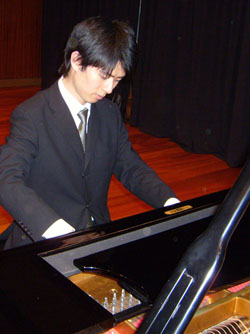Latest News Archive
Please select Category, Year, and then Month to display items
15 March 2022
|
Story Rulanzen Martin
|
Photo Supplied
 The keynote speakers are Dr Khabele Motlosa (right), Senior Lecturer in the Department of Political and Administrative Studies at NUL, and leading Pan-Africanist scholar Prof Molefi Kete Asante(left).
The keynote speakers are Dr Khabele Motlosa (right), Senior Lecturer in the Department of Political and Administrative Studies at NUL, and leading Pan-Africanist scholar Prof Molefi Kete Asante(left).
The
Centre for Gender and Africa Studies (CGAS) at the University of the Free State (UFS), together with the
National University of Lesotho (NUL) and the Academic Forum for Development of Lesotho, is hosting an online think tank on the transnational communities of the Lesotho-South Africa border from 19 to 21 March 2021. The theme of the conference is
Lesotho and South Africa: a clarion call for a Pan-Africanist future.
Dr Munyaradzi Mushonga, Programme Director: Africa Studies Programme in CGAS, is the convenor of the conference and is also leading the UFS borderlands panel. The borderlands project is jointly funded by the Office of the Dean: Faculty of the Humanities at the UFS, and the National Institute for the Humanities and Social Sciences (NIHSS).
For more information and to register for the conference, click here

Kotaro Fukuma - awe inspiring
2008-03-10
 On Thursday, 28 February 2008, the Japanese pianist, Kotaro Fukuma, gave a piano recital in the Odeion.
On Thursday, 28 February 2008, the Japanese pianist, Kotaro Fukuma, gave a piano recital in the Odeion.
Kotaro provided the audience with a rendition that showed complete technical and interpretative mastery, which Elretha Britz described as a “flawless performance” in the Volksblad.
The performance began with Haydn’s Piano Sonata, Op. 9. It was followed by Schumann’s “Carnival” and three compositions by Kotaro’s fellow countryman, Toru Takemitsu, who passed away in 1996. After a tour though an imaginative landscape of sound in Takemitsu’s compositions, he rounded off his programme with Scriabin’s Piano Sonata No. 3.
The audience not having had enough, were then treated to a Liszt transcription of Schumann’s Lied, Widmung, as an encore.
The concert was well supported by the people of Bloemfontein who went home more than satisfied. In fact, there were standing ovations at the end of almost every work.